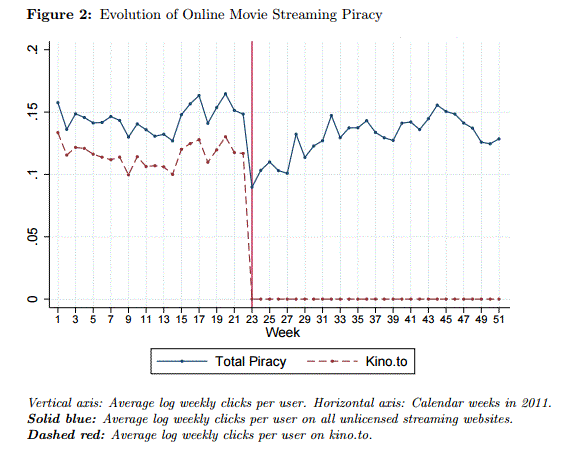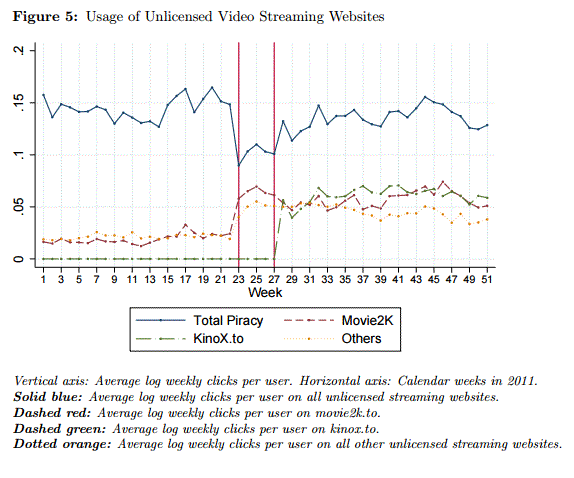The European Commission's Joint Research Center has published a paper which concludes that shutting down access to piracy sites is not only ineffective, produces minimal financial benefits to rights-holders, it can also make future copyright enforcement much more difficult.
The paper, titled 'Online Copyright Enforcement, Consumer Behavior, and Market Structure', is based on clickstream data from more than 5,000 Internet users across three European countries. The study focuses on the shutdown of German video streaming site Kino.to and the aftermaths, and found that while the shutdown had a "significant" effect on piracy rates, the effect itself was very much "short-lived".

While piracy rates declined by a third immediately following the shut down of Kino.to, the level of piracy was practically back to previous levels only a few weeks later. The shutdown also helped other piracy sites, including rival Movie2K, which absorbed traffic that used to go to Kino.to. And within a couple of weeks, a replacement site, Kinox.to, sprung up and quickly established itself as another viable alternative.

In essence, the study found that censorship and site closures are ineffective in the medium and long term because there's never a shortage of substitute sites or new replacement sites.
And more than just being ineffective, site blocking and shutdowns could make future law enforcement much more difficult.
"While the market was largely dominated by kino.to before its seizure, the intervention triggered an increase in competition between alternative platforms, ultimately resulting in a much more fragmented market ... a more fragmented market could potentially make future law enforcement interventions either more costly - as there would not be a single dominant platform to shutdown anymore - or less effective if only a single website is targeted by the intervention," said the paper.
Looking closely at the users, the paper also concludes that there would be very little financial gain for rights-holders even if these shutdowns were effective. Despite the 30% decrease in pirated content consumption during the period covered by the study, visits to legal sites increased by only 2.5% in the same period.
"If these consumers are not willing to pay for the licensed version of these products, their surplus will not translate into surplus to producers," the paper concludes.
